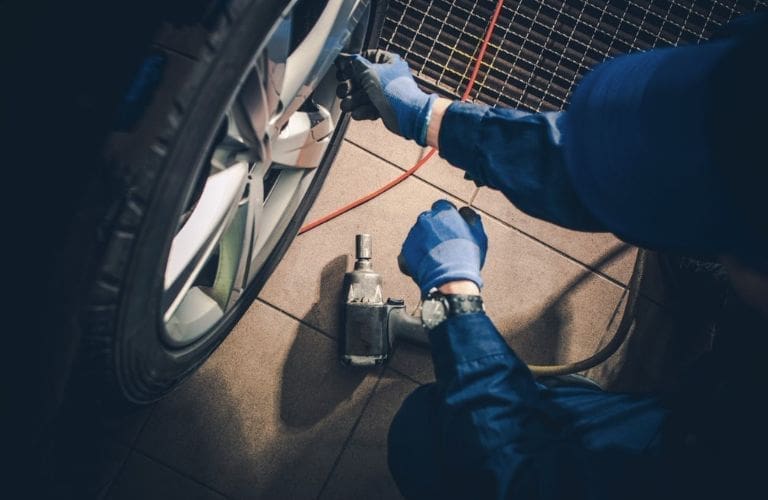If you’re a proud owner of a Ford truck, then you know just how important it is to keep your vehicle in top shape. Regular maintenance is key to ensuring that your truck performs at its best and remains reliable for years to come. In this article, we will provide you with valuable tips and tricks that will help you keep your Ford truck in pristine condition. From simple maintenance tasks to expert advice, we’ve got you covered. So, let’s dive in and discover how you can maintain your Ford truck and enjoy many miles of smooth driving!

Regular Maintenance Schedule
Regular maintenance is crucial for keeping your Ford truck running smoothly and ensuring its longevity. One key aspect of regular maintenance is following a schedule for various tasks. Here are some important maintenance tasks that you should include in your regular schedule:
Oil Changes
Regular oil changes are essential for keeping your engine healthy and functioning efficiently. The engine oil lubricates the moving parts of the engine and helps keep it cool. Over time, the oil can become contaminated with dirt and debris, which can cause damage to the engine. It is recommended to change the oil every 5,000 to 7,500 miles or as specified in your owner’s manual.
Tire Rotation
Tire rotation involves moving the tires from one position to another on a regular basis. This helps ensure even wear on all four tires, which can extend their lifespan and improve traction. It is recommended to rotate your tires every 5,000 to 7,500 miles or as advised by the tire manufacturer.
Air Filter Replacement
The air filter in your Ford truck prevents dust, dirt, and other contaminants from entering the engine. Over time, the filter can become clogged and affect the engine’s performance and fuel efficiency. It is important to replace the air filter regularly, typically every 15,000 to 30,000 miles, or as recommended by the manufacturer.
Checking Fluid Levels
Checking the fluid levels in your Ford truck is a simple yet essential maintenance task. Here are some key fluids that you should regularly check:
Engine Oil
As mentioned earlier, engine oil is vital for keeping the engine lubricated and cool. Checking the oil level regularly and topping it up if necessary is important for the overall health of the engine. It is recommended to check the oil level once a month or before long trips.
Coolant
Coolant, also known as antifreeze, is responsible for regulating the temperature of the engine. It is crucial to check the coolant level and ensure it is at the appropriate level, as low coolant levels can lead to overheating and engine damage. Check the coolant level every few months or as recommended by the manufacturer.
Brake Fluid
Brake fluid is essential for proper brake operation, and low levels can compromise your vehicle’s braking performance. Check the brake fluid level regularly and top it up if necessary. Refer to your owner’s manual for the specific intervals for checking brake fluid.
Power Steering Fluid
The power steering fluid is responsible for providing hydraulic assistance to the steering system, making it easier to turn the wheel. Ensure the power steering fluid is at the recommended level to maintain smooth and effortless steering. Check the power steering fluid level regularly, typically during routine maintenance checks.
Inspecting and Replacing Belts and Hoses
Belts and hoses play crucial roles in the proper functioning of your Ford truck’s engine and other components. Regular inspection and replacement, if needed, can prevent breakdowns and costly repairs. Here are a couple of belts and hoses to pay attention to:
Serpentine Belt
The serpentine belt powers various components such as the alternator, water pump, power steering pump, and air conditioning compressor. Inspect the serpentine belt for signs of wear, cracks, or fraying. If any issues are detected, it is advisable to replace the belt promptly.
Radiator Hoses
The radiator hoses transport coolant to and from the engine. Over time, these hoses can deteriorate and become brittle, leading to leaks and engine overheating. Regularly inspect the radiator hoses for any signs of damage or wear, such as cracks or bulges. Replace them as needed to prevent coolant leaks and engine damage.
Heater Hoses
The heater hoses are responsible for circulating hot coolant to the heater core, providing warmth to the cabin. Regularly inspect the heater hoses for any signs of damage or wear, such as leaks or bulges. Replace them if necessary to ensure proper heating and prevent coolant leaks.
Brake Inspection and Maintenance
Maintaining well-functioning brakes is crucial for your safety and the safety of others on the road. Regular brake inspections and maintenance are key to ensuring optimal brake performance. Here are a couple of important brake maintenance tasks:
Brake Pad Replacement
The brake pads are responsible for applying pressure to the brake rotors to slow down or stop your vehicle. Over time, the brake pads wear down and require replacement. Regularly check the brake pads for thickness and replace them if they are worn down to avoid potential brake failure.
Brake Fluid Inspection
In addition to checking the brake fluid level, it is important to inspect the quality of the fluid. Over time, brake fluid can become contaminated or degrade, affecting brake performance. If the brake fluid appears dirty or has a burnt odor, it is recommended to have it flushed and replaced by a professional.
Rotor Resurfacing or Replacement
The brake rotors, also known as brake discs, play a crucial role in the braking system. Over time, they can become warped or worn down due to heat and friction. If you experience pulsation or vibration when applying the brakes or if the rotors are visibly worn, have them resurfaced or replaced as needed to ensure effective braking.

Battery Maintenance
A healthy battery is essential for starting your Ford truck and powering various electrical components. Regular battery maintenance can help prolong its lifespan and prevent unexpected breakdowns. Here are some important battery maintenance tasks:
Cleaning Battery Terminals
Over time, corrosion can build up on the battery terminals, affecting the battery’s ability to transfer power. Regularly check the battery terminals for corrosion and clean them using a mixture of baking soda and water. Ensure the terminals are tight and well connected to prevent power loss.
Checking Battery Charge
If you frequently experience difficulty starting your truck, it may indicate a weak battery. Use a voltmeter or a multimeter to check the battery’s charge. A fully charged battery should read around 12.6 volts. If the battery’s charge is significantly lower, it may be time to replace it.
Replacing Old Battery
Batteries have a limited lifespan and will eventually need replacement. If your battery is more than three to five years old, it is prudent to consider replacing it, even if it seems to be functioning properly. Regularly monitor the battery’s performance and replace it if necessary to avoid unexpected failures.
Keeping Electrical System in Check
The electrical system in your Ford truck powers various components such as the lights, radio, and charging system. Regular inspection and maintenance of the electrical system are important for preventing issues and ensuring proper functionality. Here are a few important tasks to include in your maintenance routine:
Inspecting and Replacing Fuses
Fuses protect electrical circuits from overloading and prevent damage to the wiring and electrical components. Regularly inspect the fuses for signs of damage, such as a blown fuse or melted plastic. If a fuse is blown, replace it with a fuse of the appropriate rating to ensure the circuit is functioning correctly.
Testing Alternator
The alternator generates electricity and recharges the battery while the engine is running. If you notice dimming headlights or if the battery fails to charge properly, it could indicate a faulty alternator. Have the alternator tested regularly to ensure it is functioning correctly and providing sufficient power to the electrical system.
Checking Wiring Connections
Loose or corroded wiring connections can cause electrical issues and malfunctions. Regularly inspect the wiring connections and ensure they are secure and free from corrosion. If you notice any loose or damaged wires, have them repaired or replaced to prevent electrical problems.

Maintaining the Cooling System
The cooling system in your Ford truck is responsible for regulating the engine’s temperature and preventing overheating. Regular maintenance of the cooling system is crucial for optimal engine performance and preventing costly repairs. Here are a few important tasks to include in your maintenance routine:
Radiator Flushing
Over time, coolant can become contaminated with rust, scale, and other debris, which can affect the cooling system’s efficiency. Flushing the radiator involves removing the old coolant and flushing out any contaminants. It is recommended to have the radiator flushed every two to three years or as advised by the manufacturer.
Coolant Replacement
In addition to radiator flushing, regularly check the coolant level and quality. If the coolant appears dirty or has a rusty color, it is a sign that it needs to be replaced. Refer to your owner’s manual for the recommended coolant type and intervals for coolant replacement.
Thermostat Inspection and Replacement
The thermostat regulates the flow of coolant through the engine. Over time, it can become stuck or fail, leading to engine overheating. Regularly inspect the thermostat for proper operation and replace it if necessary. Consult your owner’s manual or a professional technician for guidance on thermostat replacement.
Proper Tire Care
The tires on your Ford truck are crucial for safety, performance, and fuel efficiency. Regular tire care can help prolong their lifespan and ensure optimal performance. Here are a few important tire care tasks to include in your maintenance routine:
Tire Pressure Checking
Proper tire pressure is essential for safe driving and optimal fuel efficiency. Regularly check the tire pressure using a tire pressure gauge and adjust it to the manufacturer’s recommended levels. Underinflated or overinflated tires can affect braking, handling, and tire wear.
Tire Alignment
Improper tire alignment can lead to uneven tire wear, handling issues, and reduced fuel efficiency. Have your tires aligned regularly, typically every one to two years or as advised by a professional. Proper tire alignment ensures that all four tires make even contact with the road surface, maximizing tire life and performance.
Tread Inspection
The tire tread provides grip and traction on various road surfaces. Regularly inspect the tread depth to ensure it meets the legal requirements and is not excessively worn. Insert a penny into the tread with Lincoln’s head facing down. If you can see the top of Lincoln’s head, it is time to replace your tires.

Ensuring Quality Air In the Cabin
Maintaining a clean and comfortable cabin is important for a pleasant driving experience. Regularly maintaining the air filtration and conditioning system can help ensure quality air inside your Ford truck. Here are a few important tasks to include in your maintenance routine:
Cabin Air Filter Replacement
The cabin air filter traps dust, pollen, and other airborne contaminants, preventing them from entering the cabin. Over time, the filter can become dirty and clogged, affecting the air quality inside the vehicle. Regularly inspect and replace the cabin air filter as needed, typically every 15,000 to 30,000 miles or as recommended by the manufacturer.
Air Conditioning System Inspection
The air conditioning system keeps you cool during hot weather. Regularly inspect the system for any signs of leaks, clogs, or other issues. If you notice reduced cooling performance or strange odors, have the system inspected and serviced by a professional technician.
Heater Core Inspection
The heater core provides warmth to the cabin during colder months. Regularly inspect the heater core for any signs of leaks or malfunction. If you notice coolant leaks or a lack of heat, have the heater core inspected and repaired if necessary to maintain a comfortable cabin temperature.
Protective Exterior Maintenance
Regular maintenance of the exterior of your Ford truck not only keeps it looking great but also protects it from the elements and prolongs its lifespan. Here are a few important exterior maintenance tasks to include in your routine:
Regular Washing and Waxing
Regularly washing and waxing your Ford truck helps remove dirt, grime, and road salt, which can cause damage to the paint and exterior surfaces. Wash your truck using a gentle soap and a soft sponge or cloth. Apply wax to protect the paint and provide a shiny finish. Aim to wash and wax your truck at least once every month or as needed.
Undercarriage Cleaning
The undercarriage is exposed to debris, salt, and other contaminants that can cause rust and corrosion. Regularly clean the undercarriage using a high-pressure hose or a specifically designed undercarriage cleaner. Pay special attention to areas such as the wheel wells, suspension components, and the underside of the vehicle.
Paint Touch-Ups
Small scratches, chips, and blemishes in the paint can lead to rust and further damage if left untreated. Regularly inspect your truck’s paint and touch-up any imperfections using touch-up paint that matches your vehicle’s color. This will help maintain the appearance of your truck and prevent further damage.
By following a regular maintenance schedule and covering all the necessary tasks, you can keep your Ford truck in top shape for years to come. Remember to consult your owner’s manual and seek professional help when needed. With proper maintenance and care, your Ford truck will continue to perform reliably and be a trusted companion on all your journeys.



